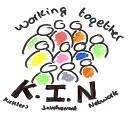Parental Learning Disability
Parental learning disability includes:
Many people with a learning disability prefer to use the term ‘learning difficulty’ and this is used interchangeably in health and social care
Learning disabilities is an umbrella term for a wide variety of learning problems, which may be mild, moderate or severe.
Learning disability includes the presence of
- A significantly reduced ability to understand new or complex information, to learn new skills
- A reduced ability to cope independently (impaired social functioning) AND
- started before adulthood, with a lasting effect on development
(HM Govt, 2001)
Why do we need to understand parental learning disability?
Failure to fairly and effectively assess the needs of parents with learning disability can lead to a breach of both the rights of the child under the United Nations Convention on Rights of the Child and the rights of the parent under the United Nations Conventions on the Rights of Persons with Disabilities, the Equality Act 2010 and Human Rights Act 1998. Parents must be given every opportunity to show that they can parent safely and be good enough parents, with appropriate support.
It is important that professionals in all agencies who work with either children, parents or families as a whole understand how to work effectively with parents who have (or are suspected to have) a learning disability as very small percentage of those parents may be eligible for specialist adult social care support
Key Principles
- Children have a right to be protected from harm
- In Family court proceedings children’s interests are paramount
- Children’s needs are usually best met by supporting their parents to look after them
- Local authorities and all other agencies working or in contact with children have a responsibility to safeguard and promote children’s welfare
- Parents with learning disabilities have the right to an assessment of their needs for support in their daily lives; such assessment should include any assistance required with parenting roles and tasks; parents should have their assessed needs met where eligible and considering available resources in line with the Care Act 2014 and associated regulations
- Parents with learning disabilities are entitled to equal access to services, including parenting support and information services
- Public bodies have a duty to actively advance equality of opportunity for people with learning disabilities and to make reasonable adjustments to policies, practices etc. if required.
Local Resources
National Resources
- www.iriss.org.uk/resources/insights/parents-learning-disabilities
- CHANGE: An organisation working for the rights of people with learning disabilities. They produce illustrated, easy read books for parents with learning disabilities: My Pregnancy, My Choice; You and Your Baby 0-1; You and Your Little Child 1-5.
- Working Together with Parents Network (Bristol University) Professionals supporting parents with learning disabilities and their children. Aims to spread positive practice and to promote policy change, so that parents with learning disabilities and their children can get better support. Includes many resources and a professional network
- Good Practice Guidance on Working with Parents with a Learning Disability
Useful resources for Parents / Carers
We facilitate this well established self-advocacy network for people with a learning disability in Kirklees.
Contact Sarah Roberts for more information:
Mobile: 07796 948736
Email: sarah.roberts@cloverleaf-advocacy.co.uk
Find us on Facebook
Or online at: Better in Kirklees annual review – Touchstone (touchstonesupport.org.uk)
Key Lessons…
- Rough handling / shaken baby
- Capacity to protect child from others
- Severe neglect – neglect highlighted as a feature in at least 60% of SCRs
- Adults with LD more likely to have other issues that may affect parenting capacity e.g. toxic trio
- Over optimism
- Focus on supporting parents in belief that this will help the child
- Inaccurate assessments of parenting capacity
You might also be interested in…
Upcoming Training events
Click on a link to register and book your place

